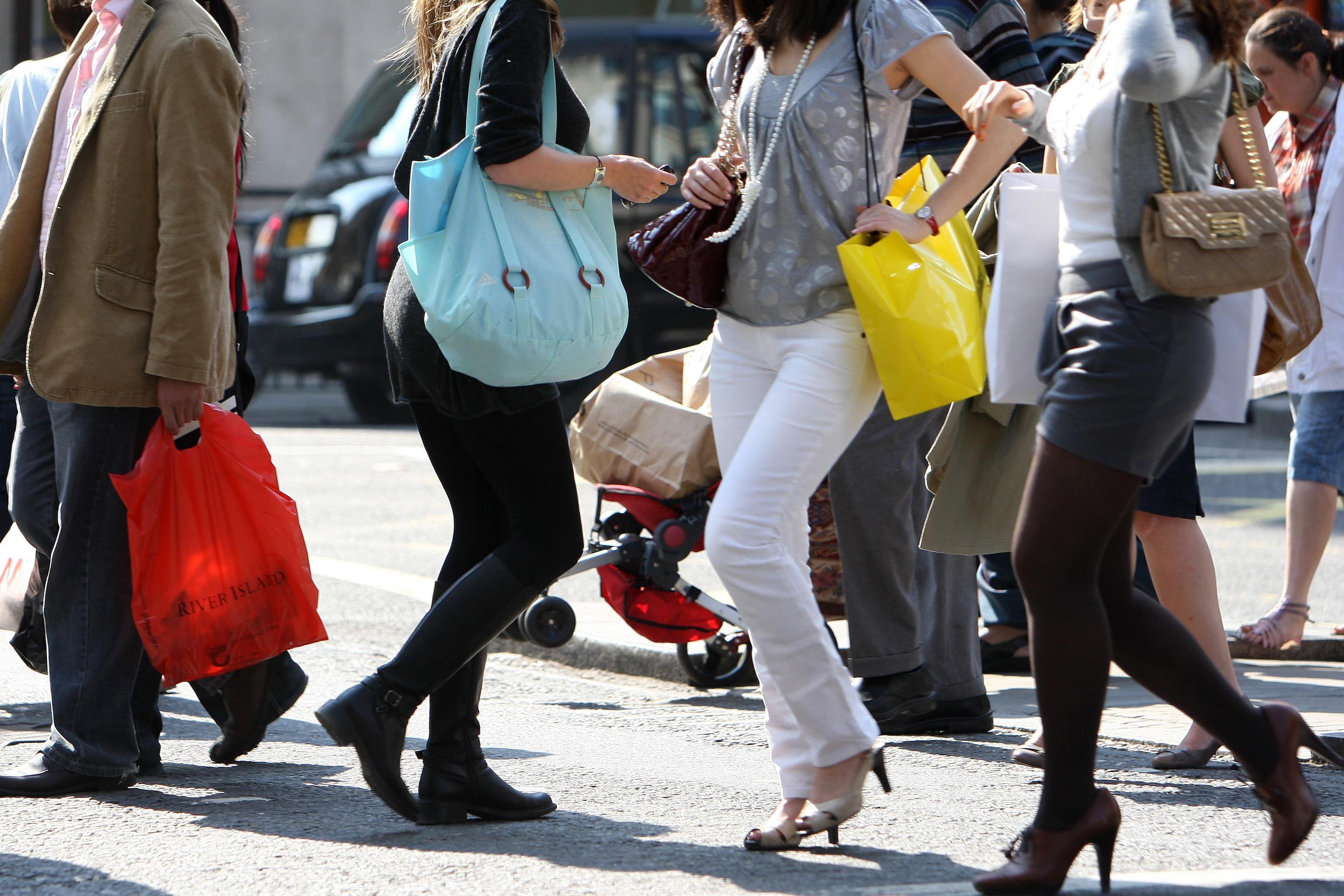Inflation expected to fall to fresh low of over two years
It comes ahead of the Bank of England’s latest interest rate decision on Thursday, with policymakers widely expected to keep rates on hold at 5.25%.

Your support helps us to tell the story
From reproductive rights to climate change to Big Tech, The Independent is on the ground when the story is developing. Whether it's investigating the financials of Elon Musk's pro-Trump PAC or producing our latest documentary, 'The A Word', which shines a light on the American women fighting for reproductive rights, we know how important it is to parse out the facts from the messaging.
At such a critical moment in US history, we need reporters on the ground. Your donation allows us to keep sending journalists to speak to both sides of the story.
The Independent is trusted by Americans across the entire political spectrum. And unlike many other quality news outlets, we choose not to lock Americans out of our reporting and analysis with paywalls. We believe quality journalism should be available to everyone, paid for by those who can afford it.
Your support makes all the difference.UK inflation is expected to have fallen to a fresh low of nearly two and a half years when official data for February is released.
Most economists expect the figures from the Office for National Statistics (ONS) to show that inflation fell to 3.5% in February – down from 4% in January and the lowest since September 2021, when it was 3.1%.
It comes ahead of the Bank of England’s latest interest rate decision on Thursday, with policymakers widely expected to keep rates on hold at 5.25%.
But another steep fall in the Consumer Prices Index (CPI) is likely to reinforce expectations that the Bank is moving closer to cutting rates later this year.
Ellie Henderson at Investec, which is pencilling in CPI at 3.6% for February, said the sharp drop in inflation is likely to come as last year’s big rises in costs for non-alcoholic drinks and clothing and footwear were not repeated this year.
She cautioned there were still some inflation pressures, however, with higher fuel prices being seen on forecourts.
There is still some way to go to bring inflation back to target and as other countries, such as the US, have demonstrated, once all the low-hanging fruit has been picked, the last stretch to 2% can often be the most difficult
Ms Henderson said: “There is also the risk that the disruption in the Red Sea resulted in higher input costs for producers in February, some of which could have been passed onto the consumer.
“There is also the potential that the extra health certificate requirements that were introduced at the start of the month for medium-and-high-risk plant and meat imports from the EU caused a material increase in consumer prices.”
She stressed that inflation will still be significantly higher than the Bank’s 2% target.
“There is still some way to go to bring inflation back to target and as other countries, such as the US, have demonstrated, once all the low-hanging fruit has been picked, the last stretch to 2% can often be the most difficult,” according to Ms Henderson.
The figures also follow official data last month confirming that the UK fell into recession at the end of last year, with the economy contracting by 0.3% in the final three months, marking the second quarter in a row of falling output.
Despite the falling inflation and economic woes, experts are expecting that only one of the Bank’s nine-strong rates setting committee to vote for a cut on Thursday.
In February when the group met, only one of them, Swati Dhingra, voted to cut rates, two voted for a rise, but the rest said they should stay at 5.25%.
Robert Wood, chief UK economist at Pantheon Macroeconomics, said he expects the same vote this time.
The Bank said in February that it expects inflation to fall back to its target between April and June this year, about 18 months earlier than it previously forecast.
However, it predicted CPI will only stay there temporarily before increasing during the second half of the year, and could rise to 2.8% by the start of 2025.
The Bank added there were significant risks to the outlook for the economy due to conflict in the Middle East and supply disruption in the Red Sea, following attacks from Houthi rebels on cargo ships going through the trade route.